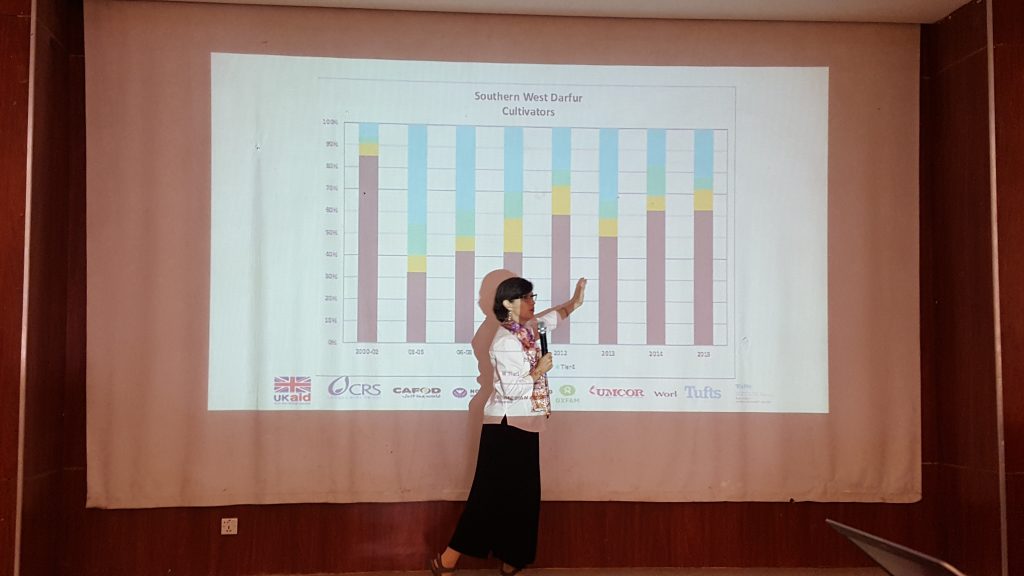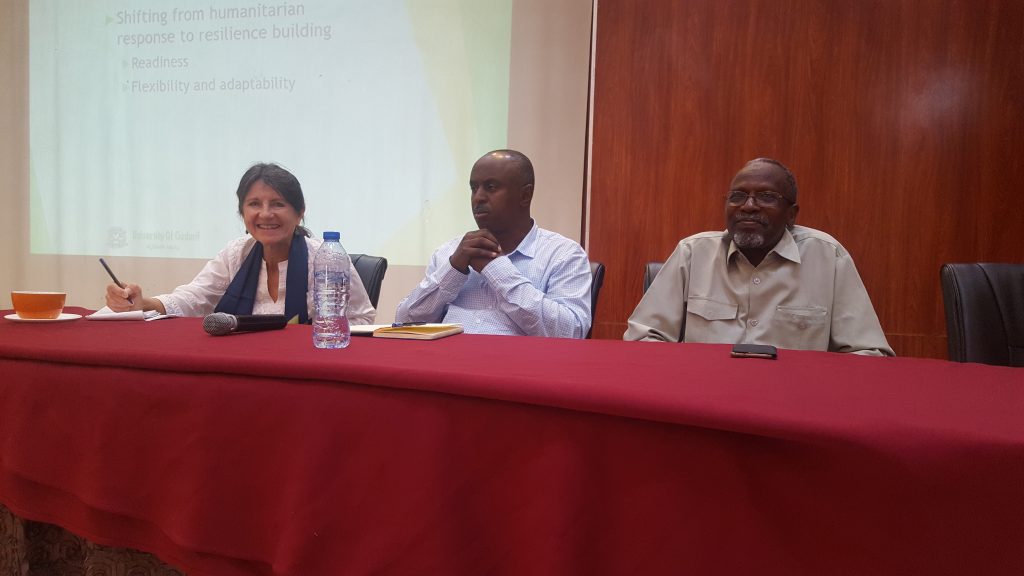Helen Young and Merry Fitzpatrick present learning on resilience in Sudan
On October 31, 2019, the Taadoud II consortium, led by Catholic Relief Services, hosted approximately 100 Sudanese and donor government officials, international and national NGOs, and academics at the Holiday Grand Villa in Khartoum, Sudan. The learning event featured Tufts research on natural resource management and resilience in Darfur.
Merry Fitzpatrick presented data on a baseline from a resilience measurement study called the Income Streams Index (ISI). The ISI is a tool to track households’ long-term trend of recovery from the larger shocks of the recent past, experiences of new covariate and idiosyncratic shocks as they happen, and the persistence of the impact of those shocks.
Helen Young presented research findings from a research brief entitled “The evolution of land tenure regimes and implications for access, integration and co-management of natural resources for pastoralism and farming.” This brief reviews farming and pastoralist livelihood systems, their evolving and overlapping tenure regimes, and the increasing pressure on resources that has contributed to strained relationships and in some cases polarization and conflict. It also considers steps needed to take full advantage of available opportunities for building the resilience of livelihood systems. Two Sudanese scholars, Musa Abdel Jalil from the University of Khartoum and Hussein Sulieman from the University of Gadarif, provided insight into the findings as discussants.
Photos
Top: Merry Fitzpatrick presents findings from the ISI.
Bottom: From left Helen Young, Hussein Sulieman, and Musa Abdal Jalil on the panel.

